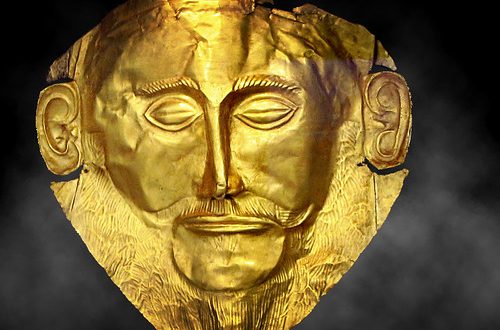“Number rules the universe.” – Pythagoras
Astronomy may already have been in rude health by the time the ancient Greeks built their fearsome empire, but it was the Hellenistic world which gave us some of the most radical – and accurate – foretelling of the universe. And it was the Ionian mathematician Pythagoras who formed some of the most intriguing conclusions about the heavens.
“Philosophy begins with Thales.” – Bertrand Russell
Pythagoras was far from the first thinker to stun the Greek empire with his observations of the planets, having been beaten to that title by the Milesian philosopher Thales. The eminent sage used Babylonian records to determine the efficacy of eclipse predictions; and was one of the first people to try to look at the skies in a purely scientific way. Thales believed that because islands appeared to float, so the earth must float upon a body of water. And though there is no concrete evidence in support, the testimony of Thales’ most illustrious fan, Aristotle, implies that he believed the world to be round, rather than the widely accepted flat.
Later Ionian thinkers would further Thales’ work by arguing everything in the sky was exhaled by the earth, and that the Moon, Sun and five known planets were bowls of fire lit by the Sun. However, come the middle of the 6th century BC, Pythagoras was already shaking the foundations of Greek astronomy with his myriad major theories.
Pythagorean Paradigms
Pythagoras (582 – 496 BC) was born in Samos, a small island in the eastern section of the Greek archipelago – but soon moved to what is now southern Italy to avoid the tyranny of Polycrates. He soon garnered much scholarly attention for his intelligence, which led to the great Thales himself recommend Pythagoras move to the Egyptian city of Memphis, known for its wise priests.
It was then that Pythagoras’ political and mathematical influence really gathered pace, forming a school of hardened fanatics, the Pythagoreans, who exalted him as the greatest thinker of the time and believed that mathematics was the fundamental principle on which the building blocks of the universe were placed. As well as astronomy Pythagoras made great strides in the fields of geometry and music – and believed that the essence of the self was number.
Though he was a firm believer in the religions of the time, he believed that good and evil, health and illness and other worldly states were triggered by imbalances in certain opposites. This also influenced Pythagoras’ work on astrology, which differs greatly from the red-top, self-help star signs of today. He believed that the universe had disseminated from a beginning, and that this beginning begat all of knowledge, such as he passed on to his pupils. Thus nature, and everything present in the world had come from the knowledge and creation of the universe; a kind of classical Big Bang.
Bringing the Stars Down to Earth
Pythagoras made several prominent observations about the universe, each one rocking the paradigms which had gone before. He built on his famed teacher Anaximander’s theorems of perfect circular motion, by insisting that the world was not in fact flat, but round. Pythagoreans also believed that, rather than being balls of flame, the five known planets were actually suspended inside crystalline spheres – each of which producing a separate musical note which Pythagoras claimed he could replicate with a single-stringed instrument called a monochord. He called this the Music of the Spheres.
However there was more to Pythagorean astronomy than interplanetary tunes. He also believed that the planets were centred on the earth; a paradigm which would last over a thousand years – even though Aristarchus (384 – 322 BC) would make the first suggestion of a heliocentric universe only two hundred years later.
However, as ground-breaking as many of Pythagoras’ theorems were, they have since been proven untrue. This is not the case of his other two major astronomical ideas. Through various empirical experiments, he was the first to announce that the Moon’s orbit was inclined to the earth’s equator. He also correctly surmised that the Evening Star, which was known to the Greeks rightly as the planet Venus, was indeed also the Morning Star. So, like so much Hellenistic science, Pythagoras mixed a questionable affinity for the gods and ancient mythology with some wisened scientific empiricism which we still hold true today.
Pythagoras and Beyond
Just as Pythagoras wasn’t the first to make profound and groundbreaking comments about the stars, neither was he by far the last. Indeed there were dozens of scholars ready to take the helm following his demise. The aforementioned Aristarchus offered his heliocentric galaxy model, though this was wrongly ridiculed by the great Aristotle, who held Pythagoras and his geocentric idea in extremely high stead. Further philosophies, such as those of Eratosthenes (276 – 197 BC) focused on geography and mathematics, until Claudius Ptolemy summarised this renaissance of antiquity in his opus Syntaxis.
However it was Pythagoras, taking radical lines from his mentor Thales, who arguably made the greatest leaps and bounds in the field of astronomy. There may have been plenty of misgivings and anomalies about his work, but there can be no doubting his inquisitive genius and mathematical aptitude – which led to generations of enlightenment in the ancient world.





